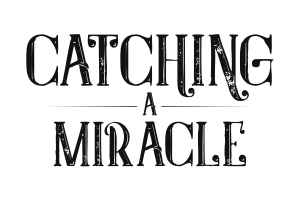9 Good Trilogy Books for Adults

When one is not enough, you’ve got to have three!
Structuring a single novel on its own is hard enough. You have to build everything around the narrative, including how you pace both the plot itself and the involved characters, to say nothing of building a believable setting and writing dialogue that readers will accept. Any writer who attempts a trilogy has to do the same thing—not just for each book, but by treating the three books as a singular story.
It’s an incredible balancing act that we as readers sometimes take for granted. We notice when all the pieces don’t quite click and may lose interest, but rarely do we dwell on what makes trilogies succeed. The entries on this list were picked as the best book trilogies for a few different reasons: they may have historical or cultural significance, a massive cult following, maybe influential to their genre, or may have simply struck that difficult balance just right. Whatever the case may be if you’re looking to dive into a new fiction series, why not give some of our recommendations a try?
1. The African Trilogy by Chinua Achebe
The first book in Achebe’s trilogy, Things Fall Apart, is a best seller around the world and has been included on many “best of” lists since its first publication, so even if you haven’t heard of this trilogy odds are good you at least know about it. The story chronicles life in Nigeria, during, and after colonialism, focusing on the overbearing yet strong character Okonkwo. The subsequent books, Arrow of God and No Longer At Ease, progress chronologically and illustrate how tribal life has irreparably changed despite attempts by the older generation (including Okonkwo) to maintain the status quo and uphold tradition. The African Trilogy is a solid read for fans of historical fiction.
2. The Gormenghast Trilogy by Mervyn Peake
A fantasy of a different sort, the Gormenghast books focus Titus Groan and his noble family living in the strange and lonely castle Gormenghast. Though powerful, their lives are rather bleak, with everyone following strange and archaic rituals for the sake of tradition as they uphold their expected roles in the household. As the story unfolds, the world is slowly revealed to not be what it seems, calling into question how much of what Titus—or his family—believe about themselves and the castle is true. Though technically three books and one short story were completed before Peake’s untimely death, his widow completed and published her version of the last book he began under the title Search Without End. The story holds up well with or without the fourth book, however.
3. Catching A Miracle Trilogy by Mark Spinicelli
The ever-evolving story that begins in Catching A Miracle and continues in The Hunt for Hans and Sparrow in the Fog tells one continuous story spanning decades, while seamlessly shifting genres, all the while keeping readers engaged through well-constructed characters and their deeply human motivation. As a child, Shelly White survived cancer, motivating her to become a doctor. When she finally does, though, her drive pushes her to try and find a cure. Little does she know that big greedy pharmaceutical companies and paid-off politicians stand in the way, trying to stop her research from ever reaching the public. As she fights against the odds, she discovers something no one was ever meant to know: a cancer cure may already exist and is simply being repressed. Those who have gone up against impossible opposition, whose lives have been changed by cancer, or who simply hope for a brighter future will find a lot to love and admire in Dr. White’s passion and quest.
4. The Bourne Trilogy by Robert Ludlum
While the film series starring Matt Damon is pretty accurate to the source material, the books offer greater detail into the trials and tribulations of Jason Bourne. Case in point: the first edition of The Bourne Identity is over five-hundred pages long. If you’re unfamiliar with The Bourne Trilogy, you should know that, despite first being published in the 80s, its success would help establish tropes used by future authors working in the popular spy thriller genre. After Jason Bourne begins suffering from retrograde amnesia, he struggles to put together who he is and what he should be doing. He follows the few clues available to him, only to find himself the target of various groups, including the CIA. Bourne must piece together a bizarre conspiracy while fighting against enemies known and mysterious while trying to discover why he’s suddenly wanted dead.
5. His Dark Materials by Philip Pullman
Yes, it’s a fantasy series that’s usually marketed as young adult fiction, but the dark tone and heavy theological issues raised in His Dark Materials have garnered a following among adults, too—and not just those who read the books when they were younger. The children Lyra Belacqua and Will Parry start in a world similar to our own in The Golden Compass but travel through parallel universes as the series evolves. Ultimately, the series as a whole is a response to Paradise Lost by Paradise Lost, following some of the same beats and plot points, but ultimately rebutting religion and Milton’s desire to see it embraced. It’s certainly controversial but well worth the read. If you enjoy His Dark Materials, Pullman wrote several more books in the same setting.
6. The Nova Trilogy by William S. Burroughs
Burroughs can be a hard sell. For much of his career, he experimented with literary form in such a way that individual chapters of a book could be read in any order and still tell the same story, at least in theory. His explorations of drug culture and human sexuality were considered extreme (and in some cases even obscene) in his time and still rattle cages now and then today. The Nova Trilogy is often considered his most experimental work. The sci-fi story told in The Soft Machine, The Ticket That Exploded, and The Nova Express involves gangs and detectives in a world where control and manipulation are easier than ever. The language itself has become like a virus, and with a few words, an upstanding citizen can become a heartless killer. The elaborate technology described by Burroughs is made all the more dizzying by his use of repetition and the cut-up technique.
7. The Foundation Trilogy by Isaac Asimov
Though expanded on later in his career with additional books, the core books of The Foundation Trilogy (Foundation, Foundation and Empire, and Second Foundation) tell its own complete functional story. In the far future, humanity has spread across the Milky Way and formed the Galactic Empire. The primary character is a mathematician named Hari Seldon, who has spent his life developing a new predictive model called psychohistory. Unfortunately, his model predicts the Galactic Empire collapsing and lying dormant for thousands of years. Unable to outright prevent the catastrophe, but compelled to do something, Seldon tasks two groups of scientists to find some way to alter the course of history, even if only slightly. The Foundation Trilogy carries many themes, but it’s most prevalent might be humankind’s tendency to work against its own self-interests and towards its destruction.
8. The Space Trilogy by C. S. Lewis
Though The Chronicles of Narnia is the better-known series, Lewis wrote this trilogy first. The two stories share many of the same underlying Christian themes, but where Narnia is a fantasy story aimed at children, The Space Trilogy deals in science-fiction and is intended for an older audience. In Out of the Silent Planet, Dr. Ransom finds himself kidnapped and taken on board a spaceship by two criminals. Their plan is to take him to the planet of Malacandra and sacrifice him to its inhabitants. Ransom escapes once they land and soon discovers the true inner workings of the universe and the terrible role Earth—the titular silent planet—may play in its destruction. Lewis built The Space Trilogy’s lore to mirror the Biblical origin story, and as such much of the work is an allegory. However, it’s subtle in its execution and succeeds in being an entertaining read regardless of the audience’s personal beliefs.
9. The Trilogy by Henryk Sienkiewicz
More commonly known as The Fire & Sword Trilogy outside of its native Poland (Fire & Sword is the title of the first book), Sienkiewicz started writing his 17th century period piece in 1884, the country was enduring a period of turbulence at the time and wasn’t independent. The story is firmly rooted in history, taking place against the backdrop of the Khmelnytsky Uprising and uses real-world events and figures as plot points. The sprawling war epic has a specific eye on one-on-one combat, particularly sword fighting, giving it a fantasy feel. With its roots so deeply rooted in history, it may be difficult for those reading it to do so as a singular piece. Luckily, the chapters can be read as individual heroic episodes for easier digestion.
Indeed, writing a trilogy is challenging to say the least. Hours of dedication and perseverance are poured into these books so that we may be able to enjoy them, and sometimes reflect from them. Each author has their own way of reaching out to people. For Mark Spinicelli, it is through the human motivation we all share within. His book Catching A Miracle showcases that and so much more.
